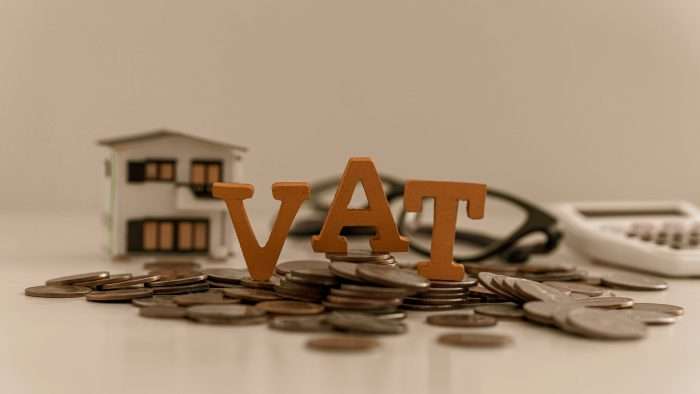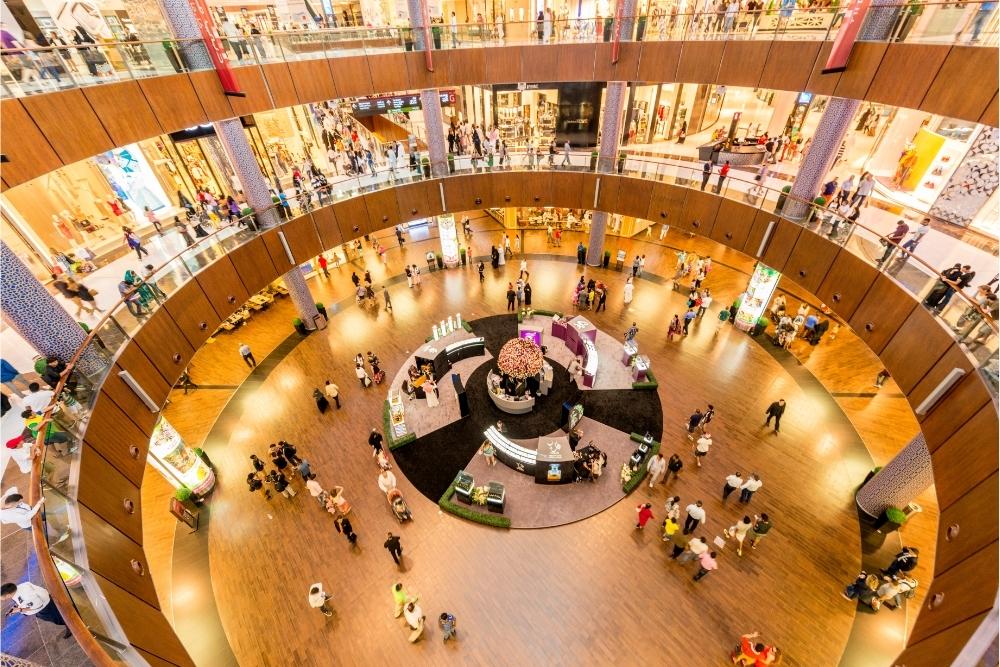The Complete Guide to Property Taxes in Dubai for International Investors
Introduction
Dubai is one of the most sought-after real estate markets in the world. The city is known for its luxury developments, world-class infrastructure with state-of-the-art amenities, and business-friendly environment. The Emirates is consistently attracting global buyers who have the goals of a stable living environment, along with unmatched investment benefits.
One of the main selling points for Dubai is the exemption of property taxes in Dubai, or, if you want to put it in a more accurate way, the lack of them. Unlike traditional international markets such as the UK or Europe, Dubai does not impose recurring annual property taxes, wealth taxes, or inheritance taxes. This tax-friendly environment helps investors in wealth by maximizing their gains on investments.
According to the data released by the Ministry of Investment UAE, “The UAE achieved an all-time high in FDI inflows in 2024, recorded at $45.6 billion,” which shows investors’ trust in Dubai’s economy.
As much as the idea of no property taxes is appealing, investors must understand the Dubai property tax laws, fees, and regulations to plan their finances effectively. This guide combines everything you need to know in 2025 about Dubai property taxes for foreigners, including upfront costs, commercial property tax in Dubai, Dubai VAT on real estate, rental income taxes, etc.
We will also explore why you should take services from a trusted sales agency like PFOC Properties, to avoid all the confusion and make your investment procedure secure and smooth.
Is there a property tax in Dubai?
The answer is clear and simple: there is no annual property tax in Dubai. Once the property is purchased, there will be no annual billing by the government for property ownership. Which presents a stark contrast to most global real estate markets, where owners are annually charged for their properties and other ownerships
Instead of yearly taxes, Dubai applies one-time fees and a few regulatory costs at the time of purchase and registration.
Property Registration Fees in Dubai
One of the main expenses that the buyer must incur is the property registration fees required by the Dubai Land Department (DLD). These include:
4% DLD transfer fee (some developers offer a promotional DLD Waiver as well in case of off-plan properties)
Title deed issuance fee of AED 580
Mortgage registration fee (if applicable): 0.25% of the loan amount + AED 290 admin charge
Property valuation fees for mortgages: typically, AED 2,500–3,500
Here, the important point to be noted is that these are the one-time costs, not the recurring taxes, which add maximum value for investors in the long run.
Other Fees to Expect When Buying Property
While there’s no property tax in Dubai, investors should plan for additional costs that are part of any transaction:
Real estate agent commission can be there if you are dealing through a local brokerage in Dubai, around 2–5% of the purchase price (varies mostly in case of ready-to-move properties)
Utility connection charges, like for DEWA (Dubai Electricity & Water Authority) setup
Service charges and maintenance fees that are paid annually to maintain common areas and amenities in your apartment building are calculated per square foot of your apartment.
Legal fees of the firms for drafting or reviewing contracts
Moving costs, such as Relocation and furnishing expenses
Understanding these costs helps you avoid breaking your bank and manage your budget effectively.
Buying Property in Dubai as a Foreigner
One of the biggest questions for international investors is, can foreigners own property in Dubai? The answer is yes. Now foreign buyers can buy property in Dubai with the full ownership as the properties are freehold now before it was only limited to few areas like designated freehold zones, such as Dubai Marina, Downtown Dubai, Palm Jumeirah etc. but now International investors can fully benefit from numerous off plan projects going on in newly emerging Dubai such as Dubai South, DIP, DIFC etc. with the ease of 100 % property ownership.
In these zones, foreigners can enjoy full ownership rights, lease, sell, and even pass properties to heirs. There are no additional Dubai real estate taxes for international investors, making the system transparent and attractive.
Property Tax Rates in Dubai 2025
As discussed earlier, there is no annual property tax; the effective property tax rates in Dubai 2025 are limited to upfront fees like the 4% DLD or the transfer charge. Compared to countries where property tax ranges between 0.5–2% of property value annually, Dubai’s system provides long-term investors with benefits from savings from capital gains, such as property appreciation and rental yields. The property tax rates in Dubai for expats and locals are effectively the same; there are no different rules for foreign and UAE nationals.
Commercial Property Tax in Dubai
If you’re looking for office spaces, shops, or retail units, the rules are slightly different:
There is no annual property tax, like residential properties.
Dubai VAT on real estate: usually a 5% VAT applies on most commercial property tax in Dubai, whether it’s for sale or lease.
Since 2023, corporate tax has been implemented. The UAE applies a 9% corporate tax on business profits above AED 375,000, which may affect investors holding multiple commercial properties under a business structure.
Still, the calculations on paper are in favor of Dubai’s tax-efficient market compared to markets like London, New York, etc.
Dubai Property Rental Tax
While landlords are not taxed directly on their rental income, tenants are required to pay a Dubai property rental tax, also known as a municipal housing fee:
5% of the annual rent for residential properties
10% of the annual rent for commercial properties
This fee is collected through DEWA utility bills. Which means it does not affect the owner’s rental income; it is the tenant’s responsibility.
Real Estate Capital Gains Tax Dubai
Another major advantage is that there is no real estate capital gains tax in Dubai on property sales. If you sell your property at a profit, you keep 100% of the gains.
Dubai VAT on Real Estate Explained
Since 2018, VAT has been applied in the UAE, but its impact on real estate is limited:
If you are a first-time buyer or it’s a new residential property, VAT will be zero percent.
On Residential leases and resales, VAT is exempted
On the Commercial property sales or leases, VAT will be 5%
Rental properties generating over AED 375,000 annually must register for VAT
That signifies that Dubai VAT on real estate does not burden the average residential investor.

Tax Implications for Foreign Property Owners in Dubai
While Dubai itself is tax-friendly, investors must consider the tax rules and implications for foreign property owners in Dubai. They vary from country to country, and it can get tricky sometimes when dealing with their home country’s tax authorities.
Key considerations include:
Double Taxation Agreements (DTAs): Dubai has DTAs with over 100 countries, including the UK, to avoid paying tax twice
Corporate structuring: if you hold a property under a business, this may attract UAE corporate tax
Foreign reporting requirements: Some countries require disclosure of offshore assets, even if Dubai does not tax them
Working with specialists such as PFOC Properties helps you align your Dubai investments with your broader tax obligations.
Dubai Real Estate Tax Exemptions
To make it more comprehensive, let’s see what the tax exemptions are. Dubai offers a wide range of Dubai real estate tax exemptions that enhance investment benefits, such as there are
No annual property tax
No capital gains tax
No inheritance tax
No wealth tax
VAT exemptions on residential leases and resales
This favorable Dubai tax system for property investors makes the city one of the most investor-friendly in the world.
Property Tax Refund Policies
In rare circumstances, Dubai property tax refund policies exist
Refund of VAT paid on eligible business-related property transactions
Refund of overpaid registration or admin fees (subject to approval by DLD)
These are handled case by case and typically require professional support.
Dubai Property Taxes and Investment Benefits
The benefits of Dubai property taxes and investment benefits are clear, as there are Predictable one-time costs, no erosion of rental income or capital gains through taxation, Higher net yields (6–10% on average) compared to global benchmarks, Legal protections for foreign ownership in freehold zones, Opportunities to link investments with UAE residency (Golden Visa eligibility)
Final Word
This Dubai property tax guide for investors shows why the emirate stands out globally. By eliminating recurring taxes, Dubai ensures investors can enjoy long-term growth without the constant burden of annual levies.
Whether you’re focused on residential or commercial property tax in Dubai, the system is designed to maximize profitability.
At PFOC, we not only provide you with the finest real estate investment advice, but our core expertise in Tax advisory makes your legal compliance effortless. Dubai offers investors a stable, tax-efficient environment from across the globe to grow their portfolios. From clear regulations to long-term ownership benefits, the city remains a top choice for global buyers.
If you’re considering buying property in Dubai as a foreigner, now is the time. The Dubai property tax laws are among the most favorable worldwide, offering unmatched benefits to international investors.

FAQs
What are the property tax rates in Dubai for international investors?
Dubai is globally attractive because there is no annual property tax. Unlike the UK, Europe, or the US, homeowners do not pay recurring yearly taxes on their properties. International investors benefit from this tax-free environment, which makes returns on property investment higher compared to many other markets.
Is VAT applicable to property purchases in Dubai?
Residential properties: Buying a completed residential property is exempt from VAT. Off-plan residential purchases are subject to 5% VAT, usually absorbed by the developer.
Commercial properties: Sales and leases of commercial property are generally subject to 5% VAT.
What are the property registration fees in Dubai?
The Dubai Land Department (DLD) charges a 4% transfer fee of the property value (usually split 50/50 between buyer and seller, though negotiable (in case of ready to move properties secondary market) plus an admin fee that ranges between AED 250–AED 4,000 depending on the property type.
What is the property tax on buying land in Dubai?
When buying land, there is no separate property tax; only the 4% DLD transfer fee applies at the time of purchase. If the land is intended for commercial use, transactions may also attract 5% VAT.

